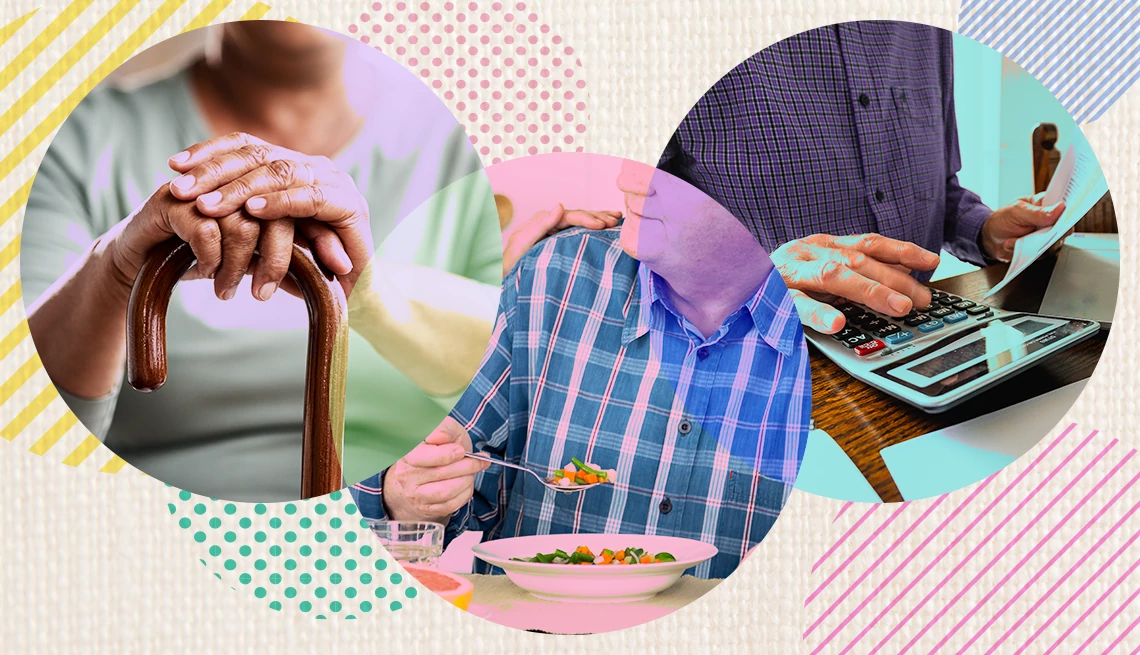AARP Hearing Center


Before the COVID-19 pandemic, Steve Barlam’s 94-year-old mother had been physically active, engaged in many activities and still drove 45 minutes to and from work five days a week. But lockdown took a toll on her.
“After COVID, we saw a bit of a change,” Barlam says. “Part of that was the social isolation. Part of it was hearing deficits. Some of it was cognitive decline.”
One change, in particular, stood out to him. “When her stockings had all these runs in them, she wanted to go out in public,” he says. As minor as that might seem, it raised a red flag for Barlam, who is a social worker with 40 years of experience managing geriatric care and president of the Aging Life Care Association and CEO of JFS care, a home care service in Los Angeles.
“My mother always was so fastidious and well put together,” he says. The marked change in her appearance signaled that he needed to get more involved with her care.
However, for most people, it can be hard to recognize or accept that an aging loved one needs help. “So often, family members go beyond the times that are optimal to initiate care due to the discomfort of addressing the difficult issues at hand,” Barlam says. “They often wait for the ‘big ticket items’ to emerge, such as when an elder isn’t taking their medications, not bathing, wearing dirty clothing or continually falling. Ideally, it’s about taking action a little earlier in the cycle.”
If you don’t get involved soon enough, your loved one’s well-being can be at risk. That’s why Barlam and other eldercare experts say it’s important to be on the lookout for these signs that an older adult might need caregiving assistance.
1. There is a change in hygiene
If your aging loved ones were always tidy but are now unkempt, it could be a sign of physical or cognitive problems. Keeping your loved ones properly dressed might be as simple as providing them with adaptive clothing, such as shirts with snaps rather than buttons, says Sherri Snelling, a gerontologist and CEO of the Caregiving Club, an educational content creation firm and consultant service. However, you might need to take a more active role in helping your loved ones with personal hygiene by providing hands-on support or hiring someone to assist them with bathing, dressing and grooming.
Join Our Fight for Caregivers
Sign up to become an AARP activist and help family caregivers get the support they need.
Also, be alert to odors and stains on clothing and furniture that can signal changes in continence. If your loved ones have urinary or bowel incontinence, they could be at risk of infections and other problems if this condition isn’t addressed, Barlam says. There are products and treatments that can help.
2. There is a change in physical appearance or mobility
Pay attention to changes in your loved ones’ weight and be alert to signs of malnutrition. Rapid weight loss could be related to an illness or a side effect of the medication they are taking. Your loved ones might have physical issues that make preparing meals challenging. Or, It might be the result of stress, depression or cognitive decline. “You want to explore why it’s happening,” Snelling says.
If your loved ones are having trouble walking or getting in and out of chairs, the bed or the car, it could be a sign that they have a mobility issue that requires assistance. If they don’t get the help they need, they could end up with injuries, says Kate Granigan, who has more than 25 years of experience as a geriatric social worker and is CEO of LifeCare Advocates in Newton, Massachusetts.

































































More From AARP
I’m My Mom’s Caregiver, But I Still Want a Life. Help!
Advice on how to avoid feeling ‘trapped’ by family caregiving responsibilities
How to Handle Caregiving’s ‘Gut-Check’ Moments
Believe in your ability to deal with any caregiving challenge that comes your way. Check out some ideas that may be helpful.
Could Financial Relief for Family Caregivers Finally Be on the Way?
A bipartisan piece of legislation could provide a federal tax credit of up to $5,000 a year to help working family caregivers